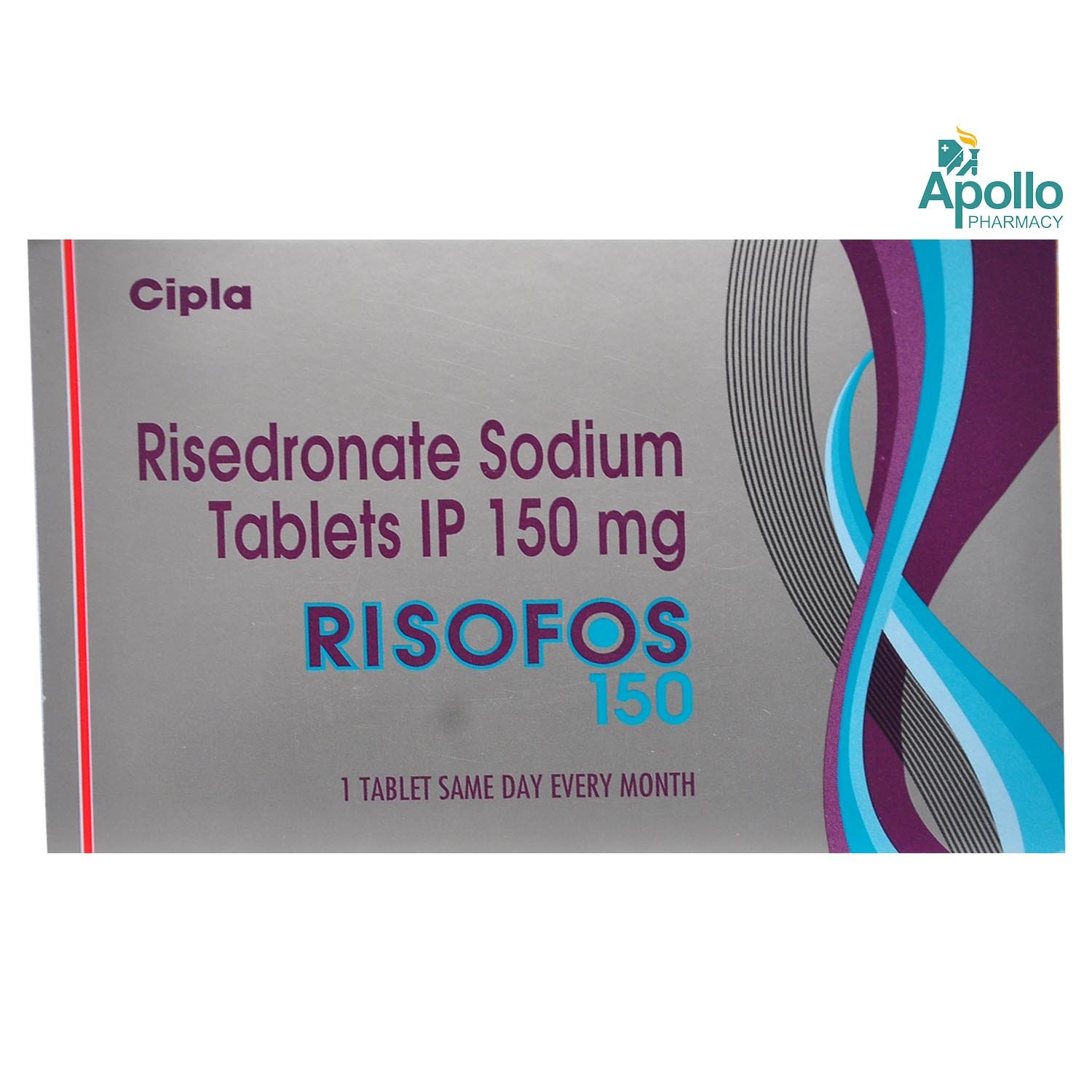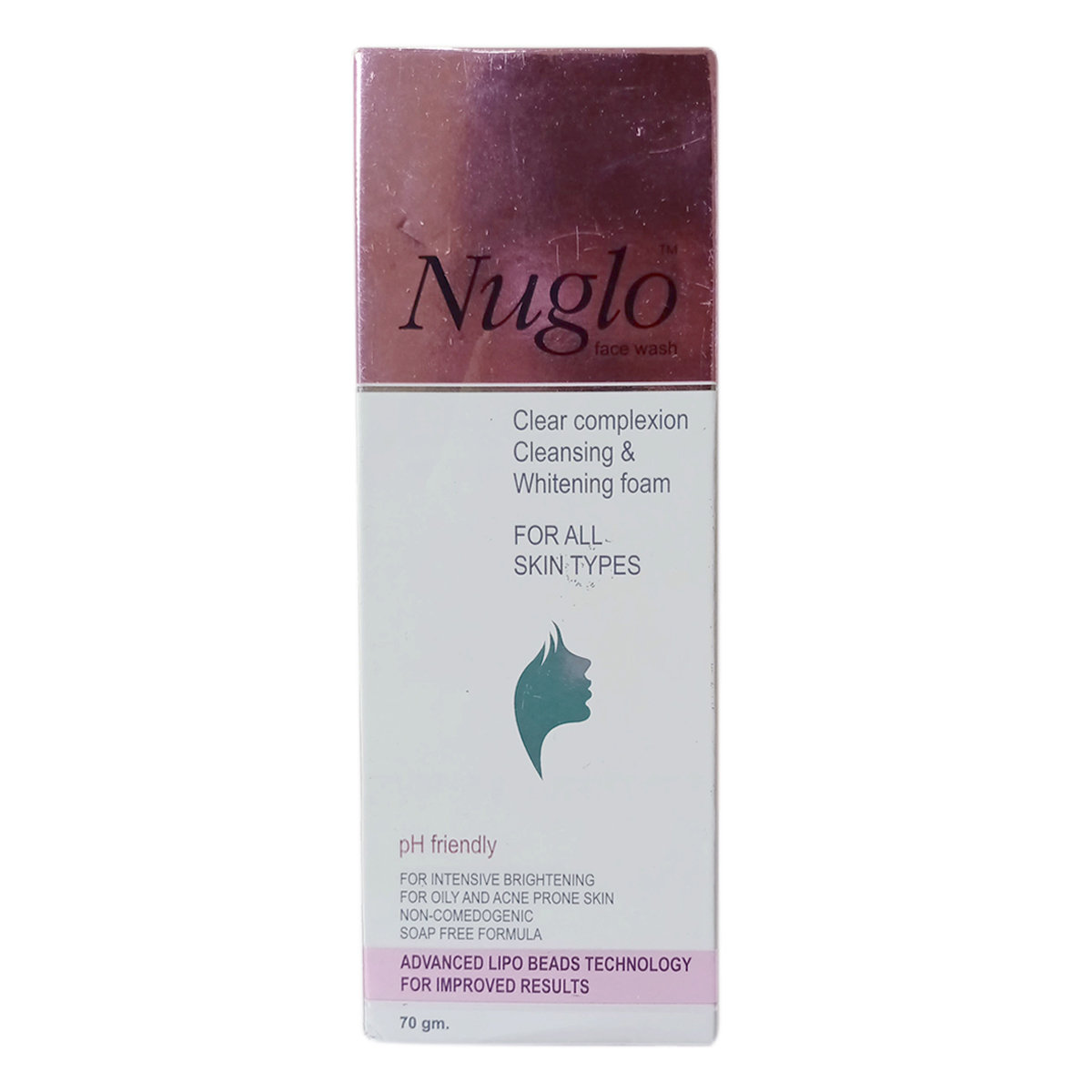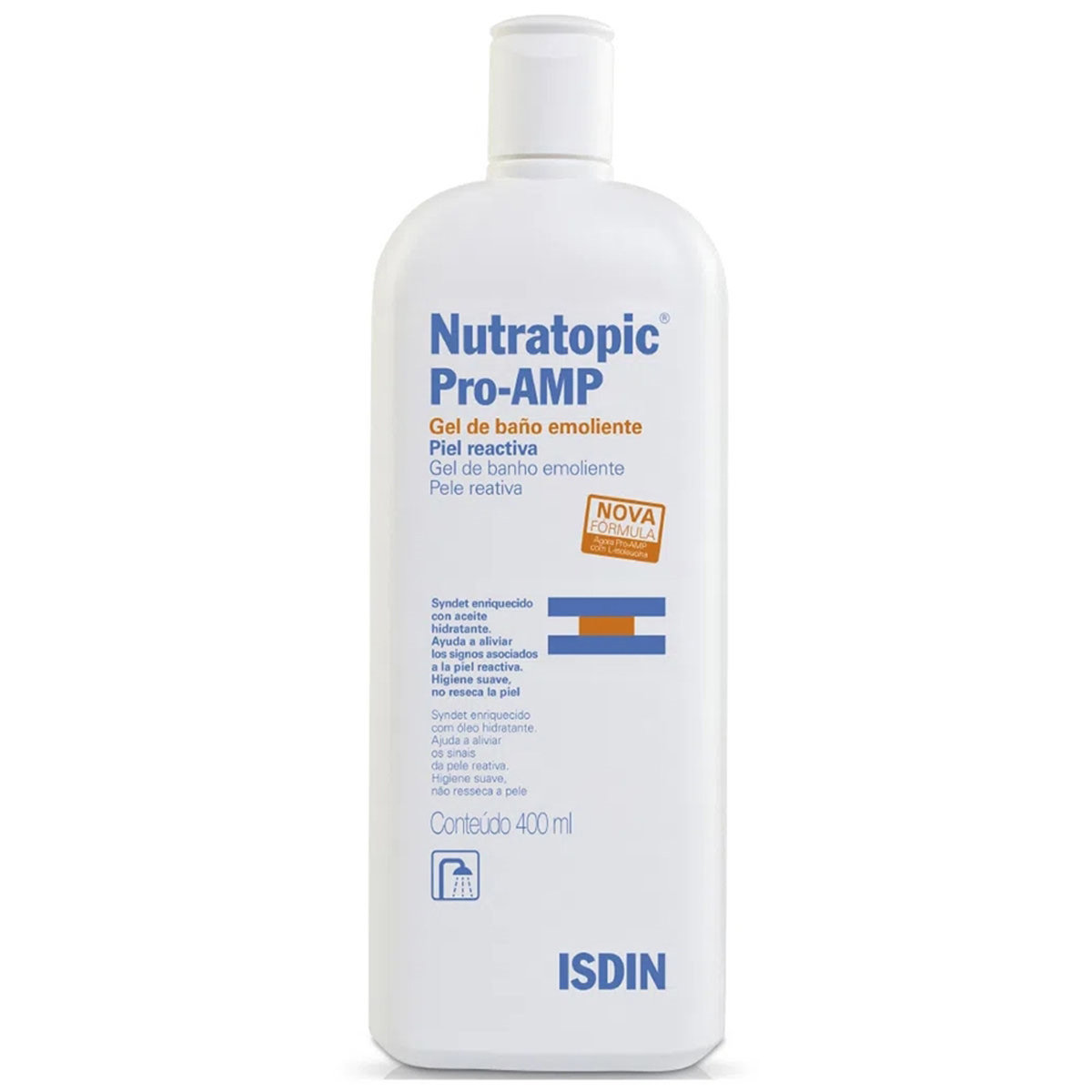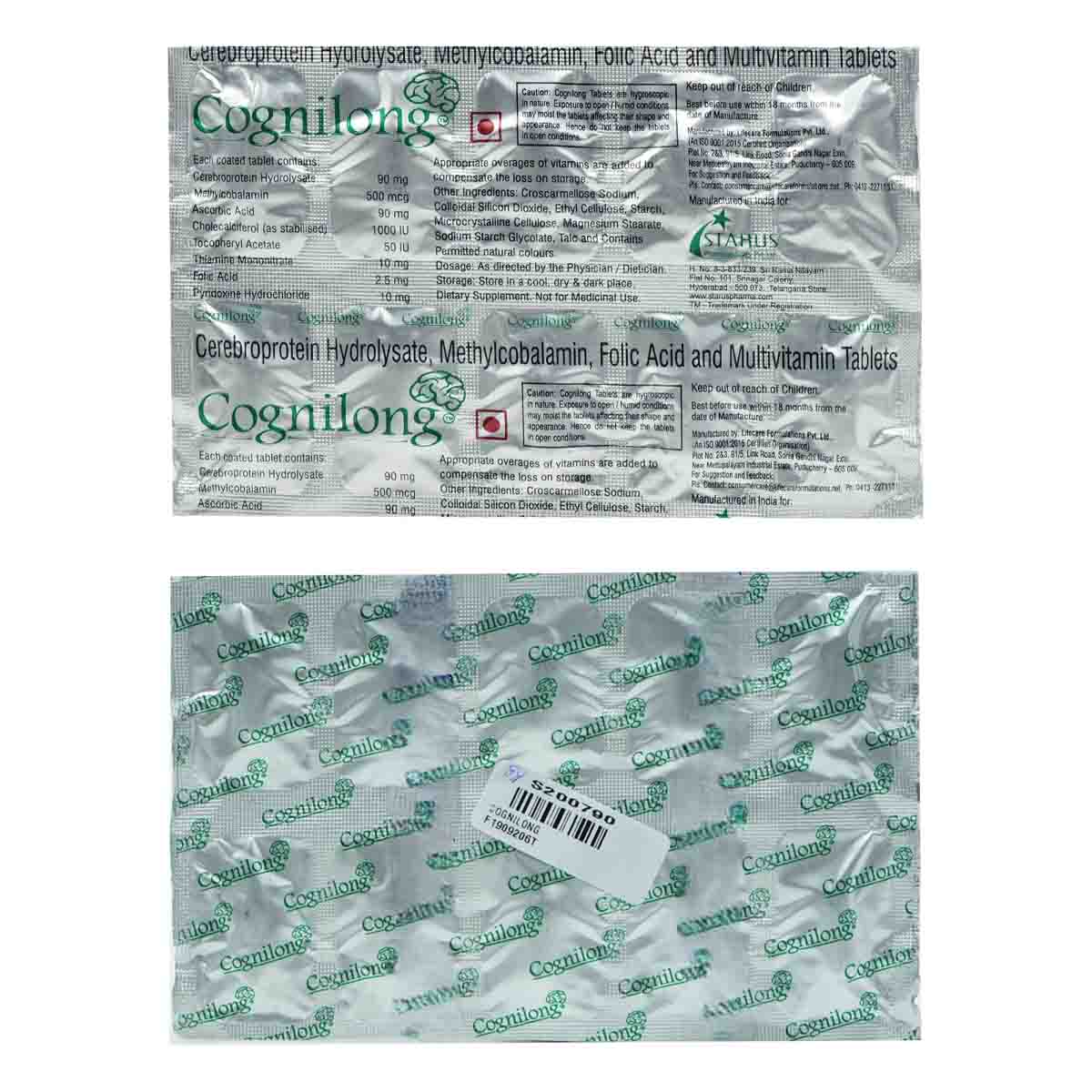Risedronic Acid
About Risedronic Acid
Risedronic Acid belongs to the class of medicines called bisphosphonates used to treat or prevent osteoporosis (weak and brittle bones) caused by menopause or taking steroids for a long time. Also, Risedronic Acid is used to treat Paget’s disease of bone. Osteoporosis is a bone disease that weakens and thins bones by decreasing bone density, common in post-menopausal women. As the density of bones decreases, they weaken and are more likely to break.
Risedronic Acid contains Risedronic acid that works by binding to the bone tightly and preventing the removal of calcium by osteoclasts (a type of bone cell that destroys bone tissue). This prevents osteoclasts from breaking down the bone and keeps the bones strong and minimizes the risk of bones breaking.
Take Risedronic Acid as prescribed by your doctor. You are advised to take Risedronic Acid for as long as your doctor has prescribed it for you based on your medical condition. In some cases, you may experience headache, nausea, indigestion, stomach pain, cramps or discomfort, constipation, diarrhea, pain in the muscles, joints, or bones, feeling of fullness or bloating. Most of these side effects of Risedronic Acid do not require medical attention and gradually resolve over time. However, if the side effects persist or worsen, please consult your doctor.
If you are allergic to Risedronic Acid, any sugars, or any other medicines, please tell your doctor. Avoid taking Risedronic Acid if you are pregnant or breastfeeding and consult a doctor. Risedronic Acid is not recommended for children below 18 years as the safety and effectiveness were not established. Avoid taking Risedronic Acid if you have hypocalcemia (low calcium levels in the blood) and severe kidney problems. Avoid drinking alcohol as heavy drinking may also cause bone loss. Avoid smoking as it may decrease bone mineral density and increase the risk of fractures. Risedronic Acid may cause osteonecrosis of the jaw (ONJ) in some patients. Therefore, if you experience any problems with teeth or mouth such as loose teeth, swelling or pain, non-healing of sores, or discharge, consult your doctor and dentist as these might be signs of osteonecrosis of the jaw.
Uses of Risedronic Acid
Medicinal Benefits
Risedronate (risedronate sodium) helps your bones stay as strong as possible. Risedronic Acid is used to treat osteoporosis and Paget’s disease. In osteoporosis, risedronate slows down the cells that break down bone. This maintains bone density and makes your bones stronger and less likely to break. In Paget's disease of bone, risedronate reduces the abnormal bone turnover that this condition causes. This helps to reduce deformity and pain and makes your bones stronger and less likely to break.
Directions for Use
- Risedronic Acid should be taken on an empty stomach, at least 30 minutes before or 2 hours after a meal. Avoid taking Risedronic Acid with milk, as it contains calcium, which may reduce the effect of Risedronic Acid.
- It is recommended to take Risedronic Acid once daily or as advised by your doctor.
- Swallow Risedronic Acid as a whole with a glass of water while in an upright position to prevent heartburn.
- Do not crush, chew, or break it.
- Do not lie down for half an hour after taking Risedronic Acid.
Storage
Side Effects of Risedronic Acid
- Headache
- Nausea
- Indigestion
- Stomach pain, cramps or discomfort
- Constipation
- Diarrhoea
- Pain in the muscles, joints or bones
- Feeling of fullness
- Bloating
Drug Warnings
If you are allergic to Risedronic Acid, or any other medicines, please tell your doctor. Avoid taking Risedronic Acid if you are pregnant or breastfeeding and consult a doctor. Risedronic Acid is not recommended for children below 18 years as the safety and effectiveness were not established. Avoid taking Risedronic Acid if you have hypocalcaemia (low calcium levels in the blood) and severe kidney problems. Avoid drinking alcohol as heavy drinking may also cause bone loss. If you have parathyroid hormone abnormalities, lack of vitamin D, swelling, numbness or pain in the jaw, loose tooth, heavy jaw feeling or had Barrett’s oesophagus (abnormal change in the cells lining the lower oesophagus), inform your doctor before taking Risedronic Acid. Avoid smoking as it may decrease bone mineral density and increase the risk of fractures. Risedronic Acid may cause osteonecrosis of the jaw (ONJ) in some patients. Therefore, if you experience any problems with teeth or mouth such as loose teeth, swelling or pain, non-healing of sores or discharge, consult your doctor and dentist as these might be signs of osteonecrosis of the jaw. Your doctor may prescribe calcium and vitamin D supplements if you do not take sufficient from your diet.
Drug Interactions
Drug-Drug Interaction: Risedronic Acid may interact with antacids (magnesium hydroxide, aluminium hydroxide), iron and calcium supplements.
Drug-Food Interaction: Avoid taking Risedronic Acid with milk as it contains calcium and may reduce the effectiveness of Risedronic Acid.
Drug-Disease Interaction: Avoid taking Risedronic Acid if you have hypocalcaemia (low calcium levels in the blood) and severe kidney problems. If you have parathyroid hormone abnormalities, lack of vitamin D, swelling, numbness or pain in the jaw, loose tooth, heavy jaw feeling or had Barrett’s oesophagus (abnormal change in the cells lining the lower oesophagus), inform your doctor before taking Risedronic Acid.
Drug-Drug Interactions Checker List:
Safety Advice

Alcohol
cautionThe interaction of alcohol with Risedronic Acid is unknown. Please consult a doctor before consuming alcohol with Risedronic Acid.

Pregnancy
cautionRisedronic Acid is a category C pregnancy drug and is given to pregnant women only if the doctor thinks benefits outweigh risks. Please consult a doctor if you are pregnant.

Breast Feeding
cautionRisedronic Acid is given to breastfeeding women only if the doctor thinks benefits are greater than risks. Please consult a doctor if you are breastfeeding.

Driving
cautionRisedronic Acid usually does not affect your ability to drive or operate machinery.

Liver
cautionTake Risedronic Acid with caution, especially if you have a history of Liver diseases/conditions. The dose may be adjusted by your doctor as required.

Kidney
cautionTake Risedronic Acid with caution, especially if you have a history of Kidney diseases/conditions. The dose may be adjusted by your doctor as required. Avoid taking Risedronic Acid if you have severe kidney problems.

Children
unsafeRisedronic Acid is not recommended for children below 18 years as the safety and effectiveness were not established.
Habit Forming
Diet & Lifestyle Advise
- Include dairy products like milk, yogurt, cheese, or milk-based custard in your diet.
- Eat daily a serving of broccoli, cabbage, bok choy (Chinese white cabbage), spinach, and other green leafy vegetables.
- Snack on calcium-rich nuts like Brazil nuts or almonds.
- Sprinkle sesame seeds over your food, vegetables, and salads. Sesame seeds are high in calcium.
- Avoid or reduce the intake of caffeine, soft drinks, and alcohol that inhibit calcium absorption.
- Replace the meat with tofu or tempeh for extra calcium in your food.
Special Advise
You are advised to inform your dentist that you are taking Risedronic Acid before undergoing any dental surgery.
Patients Concern
Disease/Condition Glossary
Osteoporosis: It is a bone disease that weakens and thins bones by decreasing bone density. As the density of bones decreases, they weaken and are more likely to break. Post-menopausal women are more likely to develop osteoporosis than men because, at menopause, women’s ovaries stop producing oestrogen (a female hormone) that is essential to keep bones healthy. Following menopause, bone loss occurs, making bones weak and more likely to break. Also, long term use of steroids may affect bone strength and cause osteoporosis in both men and women. Signs and symptoms include back pain caused by a fractured or collapsed vertebra, loss of height over time, a stooped posture, a bone that breaks much more easily than expected.
Paget’s bone disease: In Paget’s disease, bone remodelling (removal of old bone and replacement with new bone material) is too quick, and new bone is formed in a disordered manner making it weaker than normal. If left untreated, the bone may become deformed, painful and break.
FAQs
Risedronic Acid is used to treat osteoporosis (weak and brittle bones) and Paget's disease of bone.
Risedronic Acid contains Risedronic acid used to treat osteoporosis and Paget’s disease. In osteoporosis, risedronate slows down the cells that break down bone. This maintains bone density and makes your bones stronger and less likely to break. In Paget's disease of bone, risedronate reduces the abnormal bone turnover that this condition causes. This helps to reduce deformity and pain and makes your bones stronger and less likely to break.
You are not recommended to take Risedronic Acid if you have hypocalcemia (low levels of calcium in the blood) as it may worsen the condition. However, the levels of calcium and vitamin D may be checked before starting treatment with Risedronic Acid.
Risedronic Acid may cause osteonecrosis (bone damage) of the jaw. Therefore, to prevent such condition, maintain good oral hygiene and have regular dental check-ups while taking Risedronic Acid. Also, is you wear dentures, make sure they fit properly. However, if you experience any problems with teeth or mouth such as loose teeth, swelling or pain, non-healing of sores or discharge, consult your doctor and dentist as these might be signs of osteonecrosis of the jaw.
You are not recommended to take Risedronic Acid with milk as it contains calcium and may reduce the effect of Risedronic Acid. Therefore, take Risedronic Acid with a glass of water 30 minutes before food for effective results.
You are not recommended to take Risedronic Acid with antacids containing magnesium and aluminium as co-administration of these two medicines at the same time may reduce the effectiveness of Risedronic Acid. You may take antacids, calcium or iron supplements after 30 minutes of taking Risedronic Acid. However, please consult a doctor before taking Risedronic Acid with other medicines.
Risedronic Acid may rarely cause unusual fracture of the thigh bone, especially in patients taking Risedronic Acid for a prolonged duration. However, if you experience weakness, pain or discomfort in the thigh, groin or hip, please consult a doctor as these might be early signs of a possible thigh bone fracture.
Take Risedronic Acid in the morning or at least 30 minutes before eating or 2 hours after food as prescribed by your doctor. Swallow it as a whole with a glass of water while in an upright position to prevent heartburn. Do not break, crush or chew it. Do not lie down for half an hour after taking Risedronic Acid.
You should not lie down after taking Risedronic Acid because it can cause irritation or ulcers in esophagus (the tube that connects your mouth to your stomach). Remaining upright helps ensure Risedronic Acid reaches your stomach quickly and reduces the risk of esophageal irritation.
Yes, Risedronic Acid can cause hair loss as a side effect, although it is not very common. If you experience hair loss while taking Risedronic Acid, please consult your doctor.
Risedronic Acid is prescribed by a doctor only if the benefits outweighs the risk. Therefore, please consult your doctor if you are pregnant.
Ensure your diet is rich in calcium and vitamin D, include dairy products, leafy greens, nuts, and fortified foods. Engage in regular weight-bearing exercises like walking, jogging, or dancing to strengthen your bone. Drink plenty of water throughout the day to stay hydrated. Avoid or reduce the intake of caffeine, soft drinks, and alcohol that inhibit calcium absorption.
The common side effects of Risedronic Acid are headache, nausea, indigestion, stomach pain, cramps or discomfort, constipation, diarrhoea, pain in the muscles, joints, or bones, feeling of fullness or bloating. If any of these side effects persists or worsen, please consult your doctor.
Available Medicines for
Risedronic Acid

Ahaglow S Foaming Face Wash 100 ml | Salicylic Acid & Glycolic Acid
1 Bottle
₹806.9 (MRP 877)8%Off
cashback: 0






